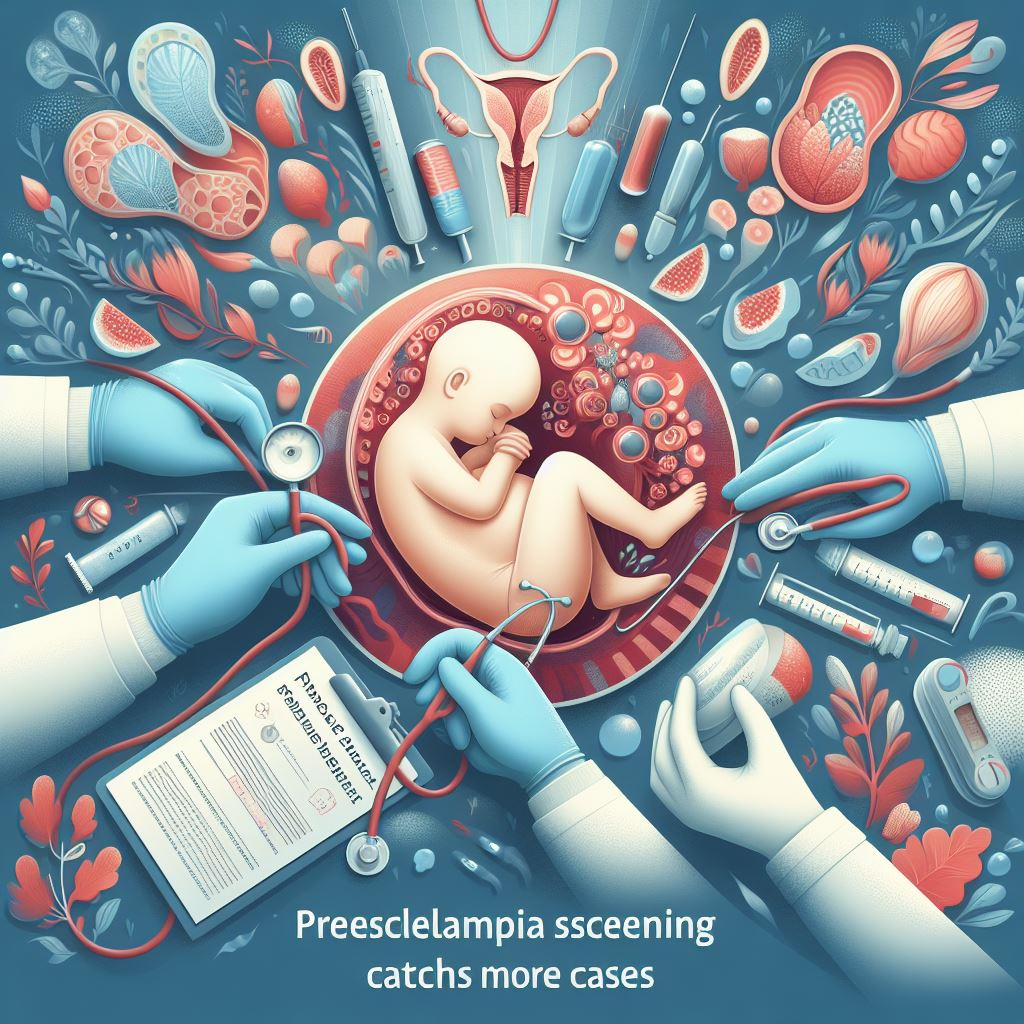About the Author
Dr. Sarah Jones is a passionate OB-GYN with over 15 years of experience. Committed to exceptional women’s healthcare, Dr. Jones is thrilled about the new blood test for preeclampsia, empowering a more proactive approach to pregnancy management.
Preeclampsia: Understanding the Silent Threat
Preeclampsia, a pregnancy complication characterized by high blood pressure, affects roughly 5-8% of pregnancies [Source: American Pregnancy Association]. Often developing silently, preeclampsia can pose serious health risks for both mother and baby if left undetected. Early diagnosis is crucial for implementing necessary interventions and ensuring a healthy outcome.
Traditional Preeclampsia Diagnosis: Limitations and Challenges
Traditionally, preeclampsia diagnosis relies on monitoring blood pressure and urine protein levels. However, these methods have limitations:
- Delayed Diagnosis: Symptoms may not appear until the condition progresses, potentially delaying critical intervention.
- Inaccuracy: High blood pressure can have other causes, leading to misdiagnosis or unnecessary anxiety.
Introducing the Game-Changer: A Blood Test for Preeclampsia
The recent FDA approval of a new blood test marks a significant breakthrough in preeclampsia diagnosis. This test measures the levels of two specific proteins in the blood: soluble fms-like tyrosine kinase-1 (sFlt-1) and placental growth factor (PlGF).
Informative Table: Blood Test for Preeclampsia
| Feature | Description |
|---|---|
| Function | Measures sFlt-1 and PlGF levels |
| Benefits | Earlier and more accurate preeclampsia diagnosis |
| Application | For women with existing hypertension or suspected preeclampsia (23-35 weeks) |
| Accuracy | High accuracy in predicting severe preeclampsia development |
This innovative test offers several advantages:
- Earlier Detection: The test can identify women at risk for severe preeclampsia weeks before symptoms arise, allowing for earlier intervention and improved outcomes.
- Enhanced Accuracy: By analyzing specific protein levels, the test provides a more precise indication of preeclampsia risk compared to traditional methods.

Comparative Table: Traditional vs. Blood Test for Preeclampsia Diagnosis
| Feature | Traditional Methods | Blood Test |
|---|---|---|
| Focus | Blood pressure & urine protein | sFlt-1 & PlGF protein levels |
| Accuracy | Limited – May miss early stages or misdiagnose | High accuracy – Detects risk for severe preeclampsia |
| Timing | Diagnosis after symptoms or concerns arise | Earlier detection, even before symptoms |
Peace of Mind and Proactive Management
The new blood test empowers a more proactive approach to preeclampsia. By identifying women at higher risk, doctors can implement closer monitoring, introduce preventative measures, and plan for earlier delivery if necessary. This translates to:
- Reduced Risks: Earlier intervention can minimize potential complications for both mother and baby.
- Improved Outcomes: Proactive management can significantly improve pregnancy outcomes.
- Reduced Anxiety: Early detection provides peace of mind for expectant mothers.
The Future of Preeclampsia Management: A Brighter Outlook
The blood test for preeclampsia signifies a monumental leap forward in pregnancy healthcare. This innovative tool empowers doctors to identify at-risk women earlier, optimize care plans, and ultimately ensure healthier pregnancies. While not yet a routine test, the future of preeclampsia management looks significantly brighter.
Open Communication is Key
As always, open communication with your doctor is vital. Discuss your preeclampsia risk factors and inquire about the availability of the blood test. Together, you can create a personalized pregnancy care plan that prioritizes your health and well-being.
Disclaimer: This article provides general information and should not be a substitute for professional medical advice. Always consult your doctor regarding your specific health concerns.




